Recipients of Peter Morgenstern-Clarren ’03 Social Justice Award Announced
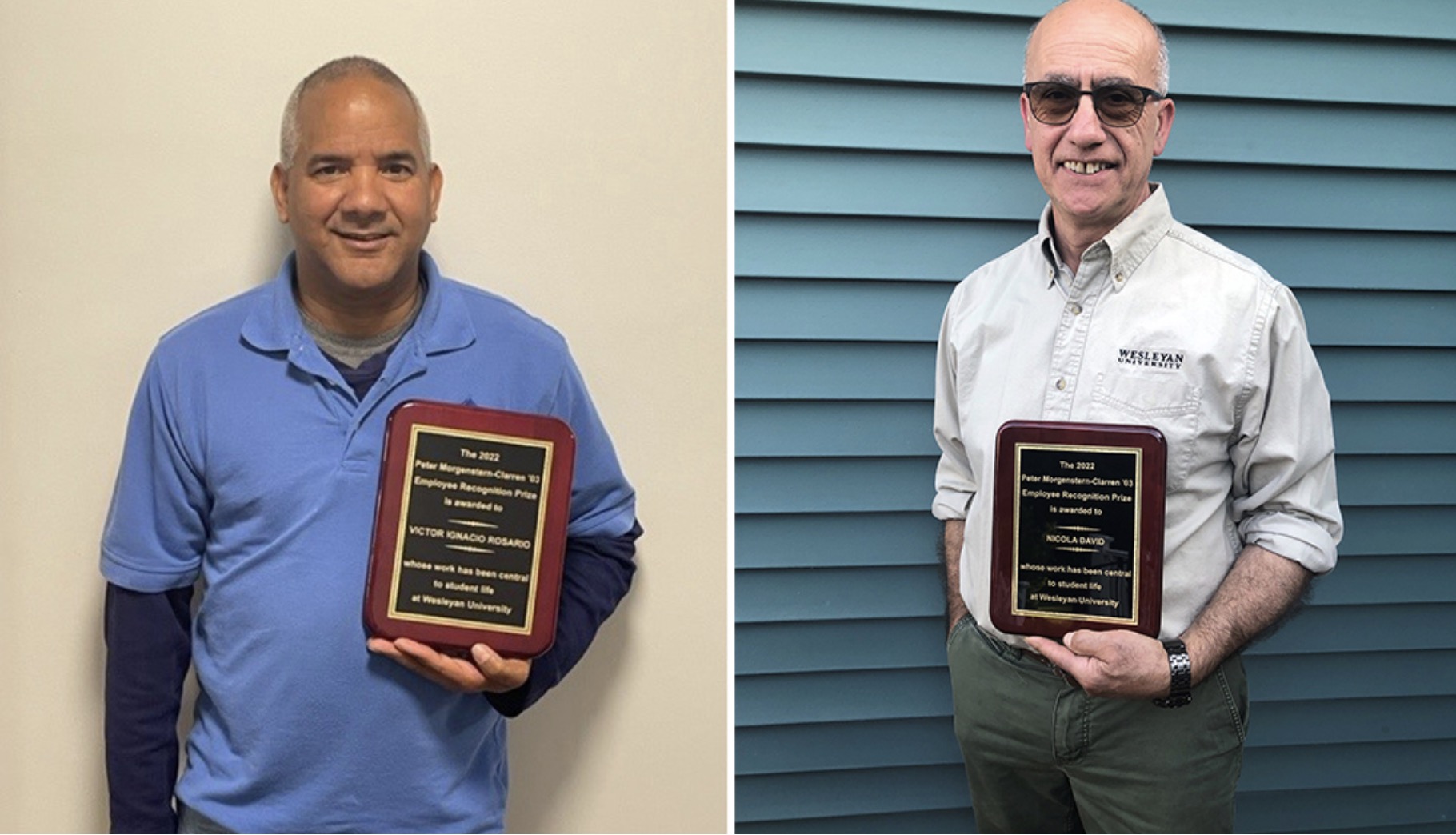
Each year, the University recognizes students and staff members who demonstrate dedication to social justice action and civic engagement through the Peter Morgenstern-Clarren ’03 Social Justice Award. The 2022 recipients of the award are custodian Victor Ignacio Rosario, foreperson and material handler for Physical Plant-Facilities Nicola “Nick” David, and students Charissa Lee ’23 and Robyn Min Xuan Wong ’23.
The award was created in memory of social justice activist Peter Morgenstern-Clarren ’03, an alumnus of the University who advocated for laborers’ rights and participated in the Amnesty International campus chapter. Morgenstern-Clarren dedicated much of his life inside and outside of the University to social justice. The award was dedicated by his parents Hadley Morgenstern-Clarren and Pat Morgenstern-Clarren after his death. The pair now continuously sponsor the award, offering $2,500 to students who demonstrate committed activism.
The 2022–23 recipients of the University’s Peter Morgenstern-Clarren ’03 Social Justice Award were declared in May 2022, then announced in an all-campus email on June 8, 2022. Faculty recipients were nominated by students at the University, while student recipients were required to write an application essay explaining their involvement on campus. Lee found out about this opportunity in an email from Dean for the Class of 2023 Jennifer Wood and was inspired to apply because of her extensive involvement on campus.
Rosario was nominated by Erin Byrne ’24, who had the opportunity to get to know him while working as the lead production assistant for WesWorks in the Fall 2021 semester, as well as through his work as a union representative for campus custodial workers. In her nomination letter, Byrne emphasized that Rosario is a vital and enthusiastic member of the University community.
“During the production process I shadowed Victor a handful of times and gained a deep appreciation for the sweat and pride that goes into his work,” Byrne wrote in her nomination letter. “Especially during the pandemic, keeping communal spaces on campus clean constantly was difficult and necessary, and Victor helped me realize just how much work goes into something so vital. Victor advocates for his peers and always has a friendly smile to share with me when I wander through SciLi while he is working.”
David was nominated by Administrative Assistant for the Office for Equity & Inclusion Evelyn Bozeman and is a material handler for the Physical Plant-Facilities. Similarly, he was nominated for his enthusiasm and passion.
“[Nick] is a customer-oriented individual who is always ready to help the students and staff upon request and does not require his customers to be put on a waiting list if he is able to make small sacrifices to make it happen,” Bozeman wrote in her nomination letter. “Throughout the years, he has been a great help during commencement as well as any time during the academic year. Often times his efforts are not highlighted because he provides great service because he enjoys what he does.”
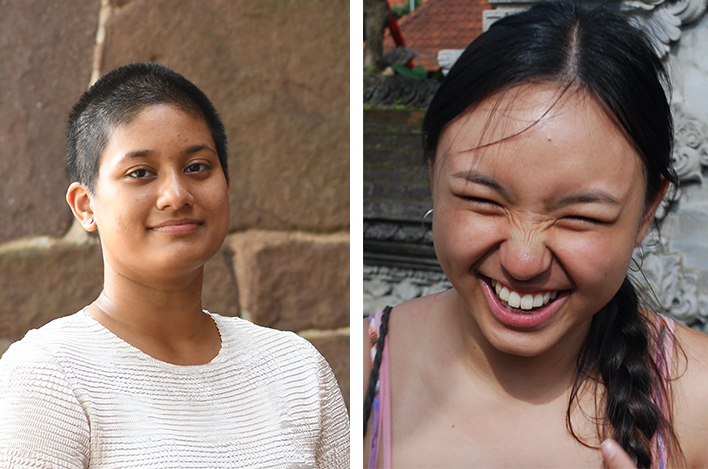
Lee, who previously served as a house manager for Light House and helped lead organizing for the Wesleyan Union of Student Employees (WesUSE), is currently a WesWell student intern and leader of Wesleyan Christian Fellowship. She explained that she wanted to get involved on campus because she recognized that the communities she was involved in received less access to resources than other communities on campus.
“My other good friend who was the president of the Muslim Students Association talked about the disparity of resources being received by the Muslim students, and then I realized all of those experiences…were also reflected the communities that I was participating in,” Lee said. “That’s when I realized there was a pattern of under-resourcing across the board for student affairs that are not related to academics. So I got more involved in my communities and told them that this was happening in other spaces on campus and we should do something to advocate for ourselves so that we get the resources that we need.”
Wong’s acts of service stemmed from her involvement in the International Student Advisory Board (ISAB), the Gordon Career Center, and the Office of Residential Life (ResLife). Through the ISAB, Wong advocated for international students at Wesleyan while simultaneously highlighting institutional issues at large. Wong joined the ISAB as a freshman as a board member and later became co-chair of the board by the start of her sophomore year.
“I think at the start of it, it was more to do with diagnosing or evaluating what sorts of issues international students were facing,” Wong said. “Then, by the time the spring came along, we were kind of gearing up to implement solutions, but then COVID hit and the combination of having to deal with a global pandemic in addition to intense anti-immigrant sentiments from the Trump administration [which] was a, you know, [sarcastically] delicious combination of factors that contributed to deep anxiety and insecurity amongst the community.”
During her time on the board, Wong helped hire new people to fill positions within the Office of International Affairs. Wong and her peers also started the International Buddy Program in the summer of 2020 which linked incoming first-year students with existing students to provide friendship, mentorship, and cultural support during harsh times.
Through the Gordon Career Center, Wong found some links between international student issues and career development. One example she pointed out was the legal limitation that inhibited international students from working more than 20 hours a week on-campus during the semester.
Through ResLife, where she worked as a house manager for Womanist House, Wong realized that there was a lot of disproportionality when it came to low-income students of color within the ResLife office. Wong worked with Lee and some other colleagues within ResLife in the effort to form WesUSE, the first undergraduate student union to be voluntarily recognized in the United States.
Lee encouraged students who want to be more active on campus but are unsure whether or not they can make an impact to be open to the different ways that impact can manifest itself on campus, such as in community building.
“I feel like measuring impact can be helpful, but a lot of the time it’s not as helpful as it may seem,” Lee said. “I think there is an element of narcissism that comes with measuring impact with the work that you do, and you should be focusing more on community building and your place within that…. I would say that that term is also very vague, ambiguous, and subjective.”
Additionally, Lee emphasized that although time can be a constraint that limits students’ ability to be involved in activism and organizing, that should not discourage people from getting started.
“If there is any barrier at all, it would definitely be time, commitment, and effort,” Lee said. “I recognize that not every person at Wesleyan prioritizes activism as a central part of [their] student experience. And that’s totally fine, but that doesn’t mean that just because this is not your priority, you don’t have the agency and power to do something about it…. [It] just comes down to talking to people and recognizing patterns and having open discussions in order for you to start mobilizing.”
Wong’s advice to students who wish to become more active and civically engaged on campus was to overcome any possible anxieties by avoiding overthinking.
“I do feel like Wesleyan’s a very hyper-liberal campus and that creates a sort of fear maybe in doing things that might be perceived as wrong, but you know…that’s a bit too black and white, I think,” Wong added. “And I think that overthinking just prevents people from even taking action or it creates a sense of complacency where people wait for someone else to do it…. If you see the problem right in front of you, you might as well just do something about it because if not you, then who?”
In the end, Lee wanted to reiterate her thanks to the Morgenstern-Clarren family for funding this award. Wong echoed this gratitude and encouraged interested students to pursue civic engagement.
“I think that there’s a lot of good stuff happening on campus, so get involved!” Wong said.
Correction: An earlier version of this article noted that Wong became co-chair of the board at the end of her sophomore year. She became co-chair the start of her sophomore year. The article has also been updated to reflect that the 20 hour cap on international student work applies for on-campus employment during the school semester. International students are allowed to work off-campus during the semester or during the breaks for up to 40 hours as long as they apply for Curricular Practical Training which authorises off-campus employment.
Kat Struhar can be reached at kstruhar@wesleyan.edu
Gabrielle McIntosh can be reached at gmcintosh@wesleyan.edu





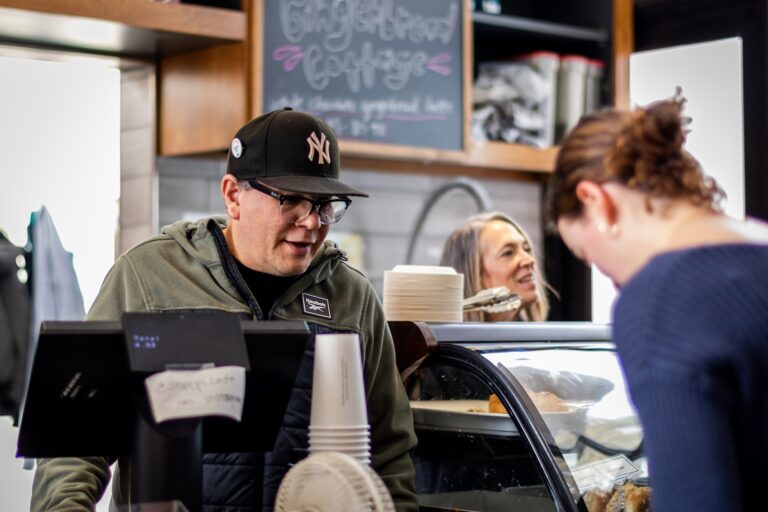
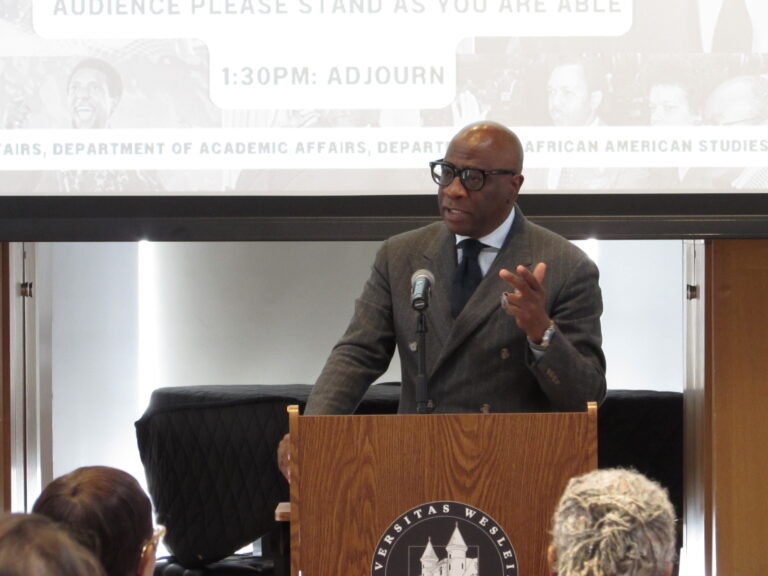
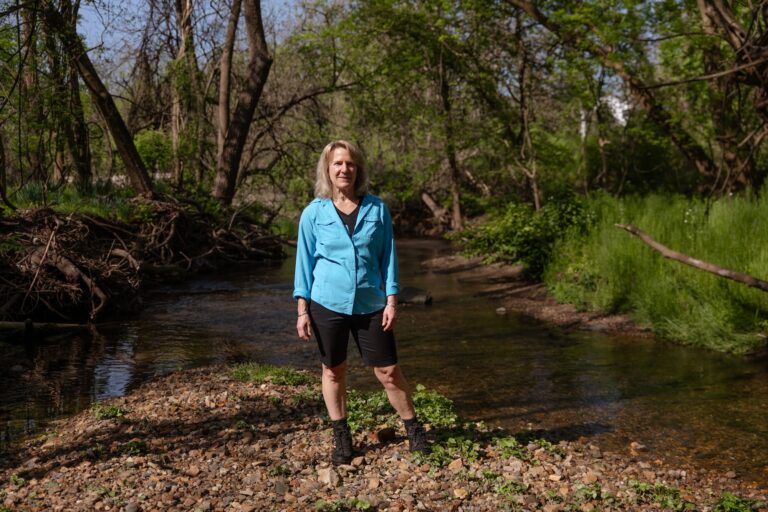
Leave a Reply